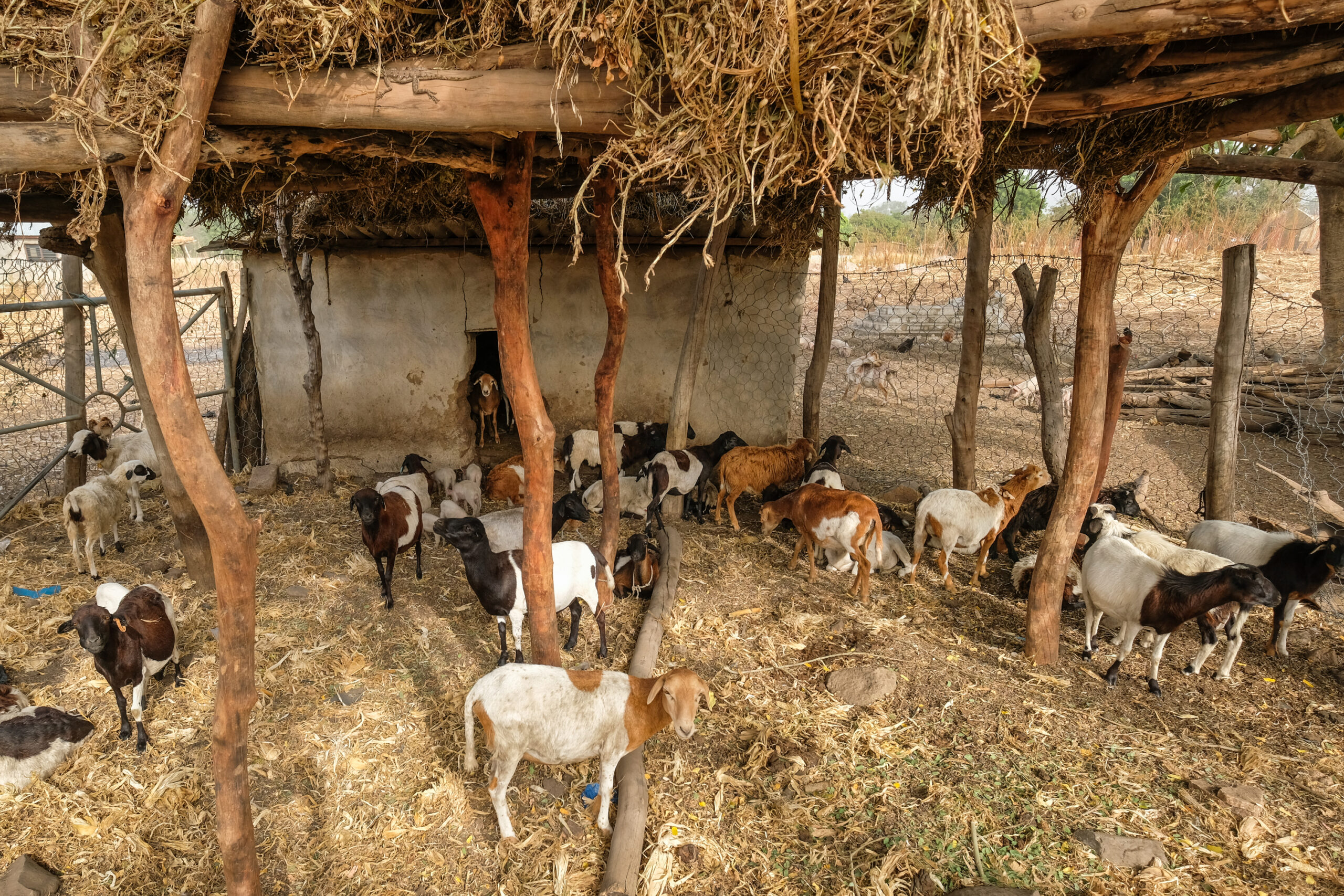Overview
Researchers
Abdul-Basit Tampuli Abukari
Lecturer, University for Development Studies
Mohammed Tanko
Lecturer, University for Development Studies
- Country
- Ghana
- Timeline
- 07/01/2023 - 03/01/2024
- Constraints
- Information
- Technology Category
- Drones

Goats in Chiana, Kassena Nankana District - Ghana. Photo by Axel Fassio/CIFOR
Lack of access to veterinary information, livestock vaccines, and medication can lead to poor animal welfare outcomes like high mortality and result in low-quality animal products such as meat. These negative effects on livestock translate to lower farmers’ welfare. In Northern Ghana, there is a high rate of livestock mortality from the anthrax bacterium and other diseases, while there is simultaneously a lack of access to veterinary information and vaccines to counter these diseases. Cowtribe is a startup organization with a mobile application that links smallholder livestock farmers to a network of partner certified agriculture and veterinary (agrovet) sales agents to address barriers to information, vaccines, and medication access. As part of their services, Cowtribe is piloting a drone delivery service to reach farmers in inaccessible locations, especially during emergency situations and during the rainy season when land travel is disrupted due to flooding.
Researchers conducted a pilot to assess the feasibility of conducting a randomized evaluation on the Cowtribe mobile application. They administered structured questionnaires, conducted focus group discussions, and carried out key informant interviews with participants and non-participants of the Cowtribe platform. The team collected data on demographics, livestock systems (intensive versus extensive), quantity and type (breed) of livestock, frequency and type of veterinary care accessed, delivery channels, timeliness of care, and challenges in using Cowtribe services.
The pilot study found that Cowtribe participants accessed veterinary services—including veterinary information, medications, and vaccinations—more frequently than non-participants. Additionally, Cowtribe participants were more likely to engage in preventive livestock medicine, particularly vaccinating livestock. This finding aligns with the researchers’ observation that Cowtribe deliberately educates farmers on the need to prevent diseases in livestock rather than treat them, which may drive this result. Relatedly, participants reported lower livestock mortality rates than non-participants. However, challenges such as poor telecom connectivity and power outages were identified as key barriers to full utilization of Cowtribe’s digital services. The researchers are exploring a full-scale impact evaluation of the Cowtribe mobile app to further analyze its effects on access to veterinary services and resulting farmer welfare.